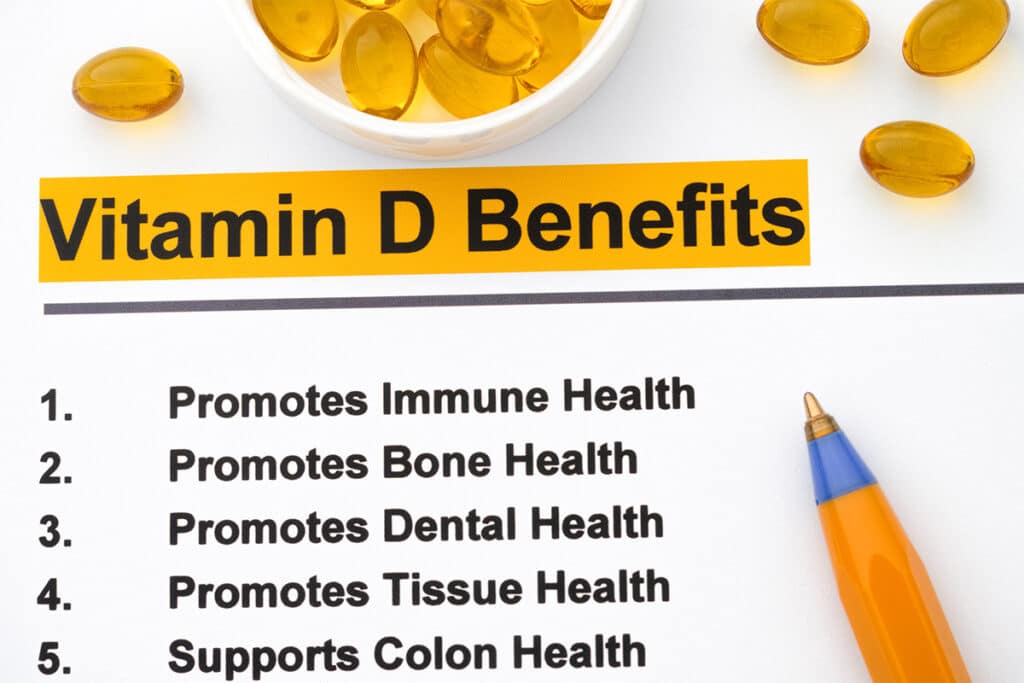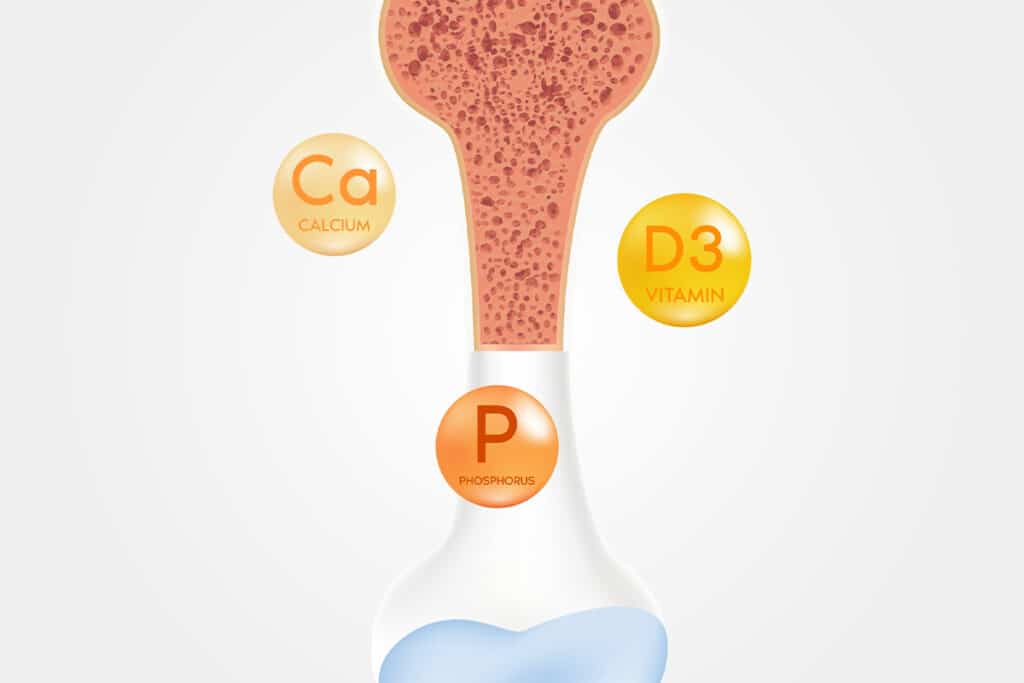
7 Shocking Facts About the Google Memory Game You Never Knew
We all have our favorite memory games, but did you know that Google has entered the ring with an impressive array of neurologic challenges for

Vitamin D is essential for our health, but did you know that vitamin D3 is the highest form of this vital nutrient? Some of the many benefits associated with taking vita D3 include improved bone health, stronger immunity and even cancer prevention! Here are just a few ways vita D3 benefits can benefit your wellbeing:

Vitamin D plays an essential role in helping the body absorb calcium, essential for strong bones. Studies have linked vitamin D deficiency with an increased risk of osteoporosis. For postmenopausal women especially, adequate amounts of Vita D3 are especially crucial as they are at greater risk for bone loss.
Did you know Vita D3 is not only beneficial for bones but also boosts your immune system, brain, and nervous system? This essential vitamin can be found in foods like eggs, fatty fish, mushrooms and fortified dairy alternatives. Continue reading to discover more about Vita D3 benefits and how to get your daily recommended intake!
Vitamin D3 is essential for the body to absorb calcium from food sources and build strong bones. It also supports a healthy immune system, brain function, and nervous system. The best sources of Vita D3 include fatty fish like salmon or tuna; eggs; mushrooms; fortified dairy alternatives. Furthermore, exposure to sunlight on bare skin provides small amounts of Vita D3 benefits – 15 minutes daily is all that’s required!
Most people do not get enough Vita D3 benefits from food alone and need to take a supplement. The Recommended Daily Intake (RDI) for Vitamin D3 for adults under 70 years old is 600 IU (15 mcg) per day; those over 70 should aim for 800 IU (20 mcg) daily. You can get your daily RDI of Vita D3 benefits either through taking an oral supplement or eating foods that are rich in this essential nutrient.
Vitamin D3 is an essential nutrient that plays a significant role in bone health, immunity, brain function and more. You can get your daily recommended intake of Vita D3 benefits by eating foods like fatty fish, eggs, mushrooms or fortified dairy alternatives or by taking a supplement. Most people require both sources and supplements to reach their RDI for this important vitamin; so make sure you’re getting enough every day to support overall wellbeing!

Vitamin D is essential for a healthy immune system. Vita D3 regulates this function and has been found to reduce the risk of respiratory infections like flu.
Vitamin D is an essential nutrient the body requires to function optimally. It aids in absorption of calcium and phosphorus – two minerals necessary for strong bones and teeth. Furthermore, studies have suggested that vitamin D may reduce the risk of certain types of cancer, heart disease, and diabetes.
Vitamin D can be obtained through food sources like eggs, fatty fish and fortified milk; however the best way to obtain it is through exposure to sunlight. Your body produces vitamin D3 when exposed to UVB rays from the sun.
Recent research has demonstrated the possible protective effects of vitamin D3 on immunity. A group of people considered at high risk for developing respiratory infections were randomly assigned either a placebo or daily doses of vitamin D3 for three months, and those taking the vitamin D3 experienced significantly fewer infections compared to their counterparts in the placebo group.
The study also discovered that those taking vitamin D3 had higher numbers of white blood cells, responsible for fighting off infection. Furthermore, those who took the vitamin D3 had greater levels of cytokines – proteins important in immunity – which help with inflammation prevention.
This study suggests that taking vitamin D3 may have some beneficial effects on immunity. If you’re interested in strengthening your defenses, consult with your doctor about whether taking a vitamin D supplement is suitable for you.
There is some evidence that vitamin D3 may provide protection against certain types of cancer, including breast, colon and prostate. Vitamin D3 could work by slowing down cancer cell growth or inducing cell death in certain types of tumors; however, more research is necessary to confirm these results.
You may know that vitamin D is important for bone health. But did you know that Vitamin D3, the form of Vitamin D your body makes when exposed to sunlight, may also help prevent cancer? Let’s take a closer look at how vitamin D3 could potentially prevent cancer development.
There is mounting evidence that vitamin D3 may help reduce the risk of several types of cancer, such as breast, prostate and colon. One large study revealed that men who had higher levels of vitamin D3 in their blood had a significantly lower likelihood of developing prostate cancer than those with lower levels.
Another study examined the correlation between colon cancer and vitamin D3. They discovered that people with higher levels of this vital nutrient in their bloodstreams had a lower likelihood of developing colon cancer than those with lower concentrations.
Vitamin D3 may help prevent cancer by strengthening the immune system and inhibiting cell proliferation – or abnormal cell growth. Furthermore, this nutrient may repair DNA damage that could otherwise lead to cancer development.
Further study is necessary to confirm the relationship between vitamin D3 benefits and reduced cancer risk, but preliminary evidence points in that direction. If you’re looking to lower your risk of cancer, adding more vitamin D3-rich foods into your diet or spending more time outdoors (with sunscreen applied, of course) could be worth considering.

Vitamin D is essential for the healthy development of a pregnant fetus. Vitamin D deficiency has been linked with an increased risk for preterm birth and low birth weight; therefore, supplementing with Vita D3 benefits during pregnancy may help reduce these risks.
Pregnancy is a time of tremendous transformation for a woman’s body. Aside from the obvious physical changes, pregnancy also brings about several hormonal adjustments which can impact one’s mood, energy level, even metabolism. Therefore, pregnant women must take extra special care in taking care of themselves and their bodies by making sure they get enough essential nutrients – one such nutrient being vitamin D3. Vitamin D3 in particular is especially crucial during this stage.
Vitamin D3 is a fat-soluble vitamin that’s only naturally found in certain foods. The best way to reap its benefits from sunlight exposure, however for those who don’t get enough sun exposure, taking a supplement may be necessary in order to ensure adequate amounts of vita D3.
Vitamin D3 is essential for pregnant women as it aids the body in absorption of calcium, which is necessary for strong bones and teeth development as well as blood clotting, muscle contraction, and nerve function. Calcium helps form the placenta during pregnancy while aiding with bone development for your unborn child.
Vitamin D3 plays a significant role in immune function. Pregnant women’s immune systems are suppressed to protect them from rejecting their fetus, leaving them more vulnerable to infections. Vitamin D3 benefits can help strengthen this connection and fight off these illnesses more effectively.
Finally, vitamin D3 benefits have been demonstrated to lower the risk of pre-eclampsia – a condition characterized by high blood pressure and protein in the urine that could prove hazardous for both mother and baby.
Pregnancy is a time when women must pay special attention to taking care of their bodies, including through getting enough vitamin D3. Vitamin D3 aids in absorption of calcium for bone and tooth development as well as immune function and can reduce pre-eclampsia risks. So if you are pregnant or planning on becoming pregnant, be sure to talk with your doctor about whether or not taking a vitamin D3 benefits supplement is beneficial for you.

Studies have suggested that vitamin D3 may benefit heart health by reducing blood pressure and raising cholesterol levels. This could potentially reduce the risk of heart disease; however, further investigation is necessary to confirm these results.
You may know that Vitamin D is essential for bone health, but did you also know it can improve heart health? Here is all the information you should know about this essential nutrient.
Vitamin D3 is an essential nutrient for bone strength and dental health. It can be obtained naturally in sunlight-exposed areas of the skin as well as from certain foods like fatty fish or supplements. Vitamin D benefits can also be obtained through food sources like dairy products and supplements.
Vitamin D3 has numerous health benefits, but one of the most significant is improved heart health. Studies suggest that taking this vitamin may help lower blood pressure and reduce inflammation. Furthermore, research suggests it could possibly prevent heart attacks and strokes.
If you want to enhance your heart health, discuss taking a vitamin D3 supplement with your doctor. Additionally, exposure to sunlight and eating foods high in this nutrient can provide additional benefits from vitamin D3.
You may know that vitamin D is essential for strong bones. But you may not realize how crucial vitamin D3 is when it comes to calcium absorption – without enough of this vital nutrient, your body cannot absorb calcium at all! That’s why we like to refer to it as the “sunshine vitamin.” Let’s take a closer look at why this nutrient is so crucial and how you can ensure you’re getting enough of it.
Vitamin D3 is a fat-soluble vitamin that aids the body in absorption of calcium. Calcium plays an essential role in building strong bones and teeth; without enough calcium your bones could become weak and brittle. Furthermore, Vitamin D3 supports muscle function as well as keeping your immune system functioning optimally.
Most people get most of their vitamin D from sunlight exposure. When your skin is exposed to UV rays, it naturally produces vitamin D3 benefits. You may also get small amounts of this vital nutrient from certain foods like fatty fish, eggs and fortified dairy products or cereals.
If you don’t get enough vitamin D3 benefits from sunlight or food sources, a supplement may be necessary. This is especially important if you have dark skin as melanin inhibits your body’s capacity for producing Vitamin D3 when exposed to sunlight. Older adults are especially at risk for deficiency since they don’t get out in the sun as often and their bodies become less efficient at producing this vital nutrient.
Vitamin D3 is essential for overall wellbeing, but especially so when it comes to your bones. Most people get their vitamin D needs from sunlight exposure or diet alone – but if this isn’t enough for you, then taking a supplement could be the answer. Check with your doctor first about whether taking a vita D3 benefits supplement is suitable for you.

Osteoporosis is a condition that causes bones to become fragile and weak, potentially breaking from falls or from coughing or sneezing. According to the National Institute of Arthritis and Musculoskeletal and Skin Diseases, 54 million Americans are affected by osteoporosis – with 80 percent being women. While there is no cure for this disease, you can take steps to prevent it – like getting enough vitamin D3 through proper nutrition.
Vitamin D3 is a nutrient found in certain foods such as fatty fish (salmon and tuna), cheese, egg yolks and fortified items like cereals or milk. You may even make Vitamin D3 from sunlight exposure on your skin. According to Harvard Health Publishing, vitamin D helps your body absorb calcium – crucial for strong bones.
The recommended daily allowance (RDA) for vitamin D is 600 international units (IU) for adults under 70 and 800 IU for those over 70. However, many experts feel these numbers are too low; The Vitamin D Council suggests adults get between 1,000 IU and 4,000 IU of vitamin D3 daily.
Vitamin D not only aids in the prevention of osteoporosis, but it has been linked to a lower risk of heart disease, certain cancers, diabetes, and high blood pressure. As we age, our bodies become less efficient at making it and because we tend to spend more time indoors (and wearing sunscreen when outdoors) — getting enough vita D3 benefits becomes even more important.
If you’re looking to combat osteoporosis, adding vitamin D3-rich foods into your diet or spending more time outdoors in the sun are two great strategies. Studies have even linked vitamin D3 with lower risks of heart disease, certain cancers, diabetes, and high blood pressure – making it a nutrient worth paying attention to. Speak with your doctor about how much D3 you should get daily and make sure you do everything possible to avoid osteoporosis.
Have you come across Vita D3 benefits supplements in your local pharmacy or grocery store and been wondering if it’s necessary? Or is it even worth spending money on?
In short, yes, you most likely do need it and yes, it is definitely worth spending money on!
Vitamin D3 offers more than just nutritional support. This essential nutrient can be found in fatty fish, eggs, fortified milk and cereals; additionally, your skin produces it when exposed to sunlight.
Vitamin D3 has numerous advantages, such as building strong bones and teeth, providing immunity against certain diseases, and even decreasing inflammation.
Vitamin D3 helps to regulate the immune system, potentially decreasing the risk of developing certain autoimmune diseases like multiple sclerosis, type 1 diabetes and rheumatoid arthritis. A 2016 study showed that supplementing with Vitamin D3 benefits could lower these diseases’ risks by up to 41%!
Vitamin D3 may also aid in treating certain respiratory infections like bronchitis and pneumonia. A study revealed that children who took vitamin D3 supplements were less likely to develop either of these conditions than those without supplements.
Vitamin D3 may also aid in treating respiratory infections like the common cold and flu. A study revealed that people who took vitamin D3 supplements were less likely to contract these illnesses than those who didn’t take the supplement.
Vitamin D3 has anti-inflammatory properties which may reduce the risk of developing chronic diseases like heart disease, stroke and cancer. A study revealed that people taking vitamin D3 supplements had a lower risk for these chronic illnesses compared to those who did not take the supplement.
Additionally, vitamin D3 benefits can help treat some symptoms associated with inflammatory bowel disease (IBD), such as Crohn’s disease and ulcerative colitis. A study revealed that people with IBD who took supplements containing vita D3 benefits had a lower risk of developing these symptoms than those without the supplement.
Vitamin D3 may help ease the pain associated with arthritis. A study revealed that people who took vitamin D3 supplements had a lower risk of developing pain than those without supplements.
Vitamin D3 supplements offer numerous health advantages, making them a worthwhile supplement to consider. Not only does it strengthen bones and teeth, but it also provides immunity against certain diseases, reduces inflammation, and can treat some respiratory infections such as bronchitis or pneumonia. If you want to improve your wellbeing overall, add these beneficial effects of Vit D3 into your daily regimen!
Vitamin D is important for maintaining strong bones, but did you know this essential nutrient can also enhance cognitive function? A recent study suggests that taking vitamin D3 may aid in improving cognitive performance among older adults. Here’s what you need to know.
This study, published in the Journal of Alzheimer’s Disease, investigated the relationship between vitamin D levels and cognitive function among older adults. Tests measuring attention, memory, and executive function (the ability to plan and organize) were given to participants. Results revealed that those with higher levels of vitamin D3 performed better on these tests than those without.
If you’re worried about your cognitive function as you age, a vitamin D supplement could be beneficial. Vitamin D3 is the form of Vitamin D most effective for improving cognitive function; so make sure to look for supplements that contain this form. You can also get beneficial amounts of this nutrient from fatty fish like salmon and tuna, as well as fortified foods like milk and cereals.
No single pill will stop cognitive decline as you age, but there are ways to reduce your risks. One such step is making sure your body gets enough vitamin D from food sources or taking a supplement with Vitamin D3. Vitamin D3 is the most effective form of this nutrient for improving cognitive function – so look for products with this form included!

Psoriasis is a chronic skin condition that causes the body’s cells to divide at an accelerated rate, leading to red, scaly patches. Estimates estimate that around 7.5 million Americans suffer from it; although there is no cure, treatments exist to manage symptoms. One such treatment is vitamin D3, which has been demonstrated effective at decreasing its severity. Let us explore how vitamin D3 benefits work and why this could be beneficial for you.
Vitamin D3 is a pro-hormone that encourages the body to create new cells. When applied topically, it reduces skin cell proliferation and thus may lessen symptoms associated with psoriasis. Furthermore, Vitamin D3 has anti-inflammatory properties which may soothe red, inflamed patches caused by psoriasis.
If you’re searching for a natural treatment for psoriasis that has few side effects, vitamin D3 could be worth exploring. Furthermore, this inexpensive vitamin can be found in most health food stores. Before trying any vita D3 benefits, consult your doctor first to make sure it’s safe and determine the optimal dosage according to your needs.
If you suffer from psoriasis, finding a treatment that works can be daunting. If you’re searching for an all-natural solution with few side effects, vita D3 benefits may be worth exploring. Be sure to consult your doctor before beginning any new treatment regimen to guarantee safety and efficacy.
Vitamin D3 is an essential nutrient for overall wellness. If you are not getting enough of this vital nutrient from sunlight or your diet, supplement with Vita D3 benefits to ensure you’re getting enough of this vital nutrient.

We all have our favorite memory games, but did you know that Google has entered the ring with an impressive array of neurologic challenges for

Einstein’s Universal Appeal: Exploring the Global Impact of an Iconic Genius in 2023 Why Does the World Remember Einstein as a World Citizen? What is

I genuinely dislike computer science, but that won’t stop me from earning my degree by 2023. It’s no secret that computer science classes can be

In the early days of Instagram, getting verified was considered a sign of honor. That little blue checkmark next to your name indicated you were
† These statements have not been evaluated by the FDA. This product is not intended to diagnose, treat, cure, or prevent any disease.